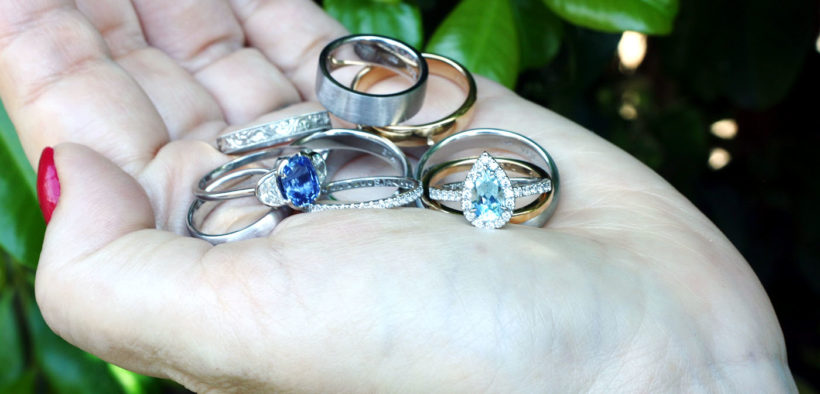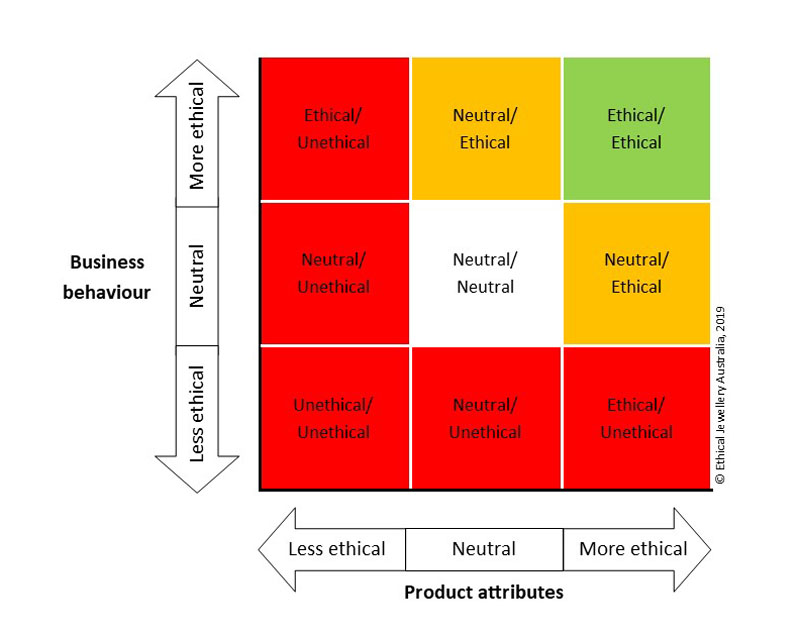Being an “ethical business” – what does that even mean?
Share

Over the past couple of decades, we’ve witnessed what might be described as a tectonic shift in consumer’s attitudes towards concepts like sustainability, environmental responsibility, human rights, Fair Trade, animal welfare and the like.
Let’s face it, last century hardly anyone knew what these things meant, much less actively sought them out as desirable qualities in a business or product.
On top of that, we’re now witnessing rapidly escalating concerns about climate change and the negative affects humans, through agriculture, industry, and consumption, are having on the planet.
Gladly, this change in consumer awareness and concern is causing positive change in the business world, but it is proving to be a bit of a rough ride.
One area of friction is how companies are going about communicating their commitment to improvement when promoting themselves to the buying public.
Very often businesses trying to behave responsibly and address the issues I just mentioned bundle those broad concepts together under one catch-all label, namely, “ethical”.
This bundling of ideas is convenient when it comes to conveying a simple message to consumers. The problem, however, is the all-encompassing nature of the term leaves it open to misuse and abuse.
There are a lot of conflicting ideas about what behaving ethically means. There are all kinds of grey areas and compromises with the only certainty being that no one business can be all things to all people. It just doesn’t work that way.
The problem is, it’s difficult to define ‘ethical’
Consider the jewellery world as an example.
A week or so ago I read a definition of ‘Ethical Jewellery’ that described it as “jewellery that has no negative impact on the people who make it, or the environment it’s produced in.”
The problem with this is how do you define ‘no negative impact’?
Is the consumption of energy and resources to make a piece of jewellery on its own a ‘negative impact’ – given that jewellery is not one of life’s necessities like water, food, and shelter?
Is digging a hole in the ground to recover diamonds, gemstones, and precious metals a negative impact when the economic development afforded by such activities can lead to all sorts of local benefits including education, health and infrastructure?
And, what about displacement activities or negative consequences of change? For example, if not mining, we must ask what else might the local people do instead? They might choose activities that are even more dangerous for them or worse environmentally. Perhaps they might resort to becoming involved in criminal enterprise simply to survive. Ethically, is that in everyone’s best interests?
Another more useful definition of ‘ethical (products)’ I found was in essence: ‘Products that are produced and traded in ways that avoid or lessen social, environmental, economic, cultural and/or political harm OR produce benefits to same on a local, regional, national or global scale.’
I think the notions of lessening harm and increasing benefits are central to the idea of operating an ethical business, regardless of the industry or product type.
I also think the best we can do is continually strive to be better and educate those around us to be more thoughtful and considerate in their consumption habits.
Is there an ethical ‘tipping point’?
Doing something is always better than doing nothing, but surely there must be a tipping point, the point at which a business or product ceases to be simply ‘run-of-the-mill’ and can justifiably be described as ‘ethical’?
To illustrate what I mean, let me share a recent experience. I was approached by a potential supplier promoting their product. In their initial pitch, I zeroed in on one word they used to describe themselves – ‘ethical’.
At first, I was excited because I’m always keen to learn about new suppliers who share the same values. Sadly though, I was very quickly disappointed.
It turned out that business’s definition of ethical only extended to how they literally describe their business-to-business dealings. In other words, they consider that by simply obeying commercial law, they can call themselves an ethical business.
I don’t know about you, but in this day and age with so much attention being paid to things like sustainability, eco-friendliness and so on, using the word ethical in a commercial context brings with it an expectation of a whole lot more than simply obeying the law.
Technically this business hasn’t done anything wrong, but it’s easy to see how consumers less diligent in their research might be misled.
What else doesn’t qualify?
Here I want to bring to the table the ideas of eco-friendliness and sustainability. Not because I don’t think they are good things, they are. I’m just not sure that, in isolation, they automatically imbue ethical status upon a business or product.
Let me give an extreme example. A manufacturer could, theoretically, use renewable energy and sustainably sourced materials to make their product thereby ticking the eco-friendliness and sustainability boxes. Yet at the same time, they could be treating their employees badly or even be using slave labour.
No reasonable person would consider that business to be an ethical one, yet if you didn’t look past their green credentials it would be easy to rate them as a good company to do business with.
“… just because something is legal, that doesn’t make it right.”
Just as you can’t be half pregnant, you can’t be half ethical. You can’t do some things right and expect that to outweigh obvious wrongdoing.
In the same vein, just because something is legal, that doesn’t make it right.
In some places, it may be perfectly legal to dump toxic waste into the nearest river. To my mind, you can’t use legality as an excuse for immoral behaviour and still call yourself ‘ethical’.
What’s the difference between ‘acting in good faith’ and greenwashing?
First up, what is greenwashing?
Broadly, greenwashing describes any activity that might be seen as a distraction from (or compensation for) any kind of business activity that most people would consider to be either socially or environmentally undesirable.
Greenwashing has negative connotations and the term is commonly used to denigrate certain types of business activities, but it is not always a deserved criticism.
Distraction I have a problem with, but not compensation – provided the reason for and intent of that compensation is clearly disclosed.
For example, suppose a business does not have access to renewable energy, so to compensate they purchase carbon credits and otherwise do the best they can to be environmentally and socially responsible.
I can get behind this kind of compensatory behaviour and see it as acting in good faith.
A business however that does nothing to source and produce products responsibly or be socially responsible in its day-to-day activities but then claims to be ethical because they throw money at some vaguely related charity, well, to my mind that falls into the greenwashing category.
The distinction between good faith and greenwashing, in my opinion, should be assessed in terms of intent, relevance, disclosure and actual benefit.
Is it enough to be an ethical business?
The point I’m making here is there’s a difference between an ethical product and an ethical business.
In practice it would be quite possible for a business to be ethical – to recycle, upcycle, use renewable energy, support relevant charities and so on, plant trees, treat staff really well and generally go above and beyond – and yet still sell products that are not produced in a particularly environmentally or socially responsible manner.
Here it’s important to recognise that if there’s no better option, then that’s as good as it gets. It’s still better than not doing anything that might be considered environmentally or socially responsible. But consumers should be aware that whilst they’re buying from an ‘ethical business’, that does not mean the product they’ve purchased is, in and of itself, an ethical one.
It’s then up to the consumer to decide whether they’re making a purchasing decision that aligns with their personal values.
Is it enough to sell an ethical product?
We’ve all heard of instances where high profile businesses loudly and proudly claim to be producing eco-friendly products only to discover they’re manufacturing them in sweatshops somewhere offshore or are otherwise behaving unethically or illegally.
One does not compensate for the other.
Somewhat better than that are those businesses that sell ethical products but otherwise simply operate within the local law, not doing anything wrong, but not doing anything that might be considered ‘good corporate citizenship’ either.
Consumers might feel good about the product, but one must wonder just how committed the business owner is to the principles of environmental and social responsibility. Perhaps they’re cynically exploiting the business opportunity afforded by the ‘green shift’ in society – or maybe they’re just lazy or tight-fisted?
Either way, it’s not ideal and thoughtful consumers might do well to seek out a better alternative.
Read Building an Ethical Retail Business
Can any business reasonably claim to be ‘ethical’?
Short answer: Yes, but the reality is there are degrees of being ethical ranging from ‘not very’ to ‘in, boots and all’.
Another problem in deciding whether a business and/or product is ethical is that behaving ethically means different things to different people.
I think most people would agree that things like exploitation, slavery, pollution, smuggling, animal cruelty, fraud and wanton environmental destruction are all unethical. That’s the baseline.
But beyond that, there are many conflicting ideas and opinions about what is and isn’t ethical when it comes to things like primary industry revenue vs. habitat destruction, economic development vs. grinding poverty, recycling vs. Fair Trade, technology vs. natural, frivolous personal decoration vs. cultural necessity. As you can see, it’s complicated.
Whatever your standpoint, you are free to plead your case. But ultimately, it’s up to the consumer to decide what’s important to them (outside the boundaries of what is and isn’t legal).
How might we categorise businesses and products?
What we need to recognise is ethics can be a very personal thing, and because of that it’s virtually impossible for a business or product to be ethical by everyone’s standards.
But if we come back to the second definition of ethical I cited earlier – about the general principles of lessening harm and/or producing benefits – it is possible to rank businesses and products by both your own and general societal standards.
If we evaluate businesses and products in terms of whether they lessen harm and/or deliver benefits to the community at large – be that locally or globally – you can come up with a grid where both could be categorised as follows:
- Unethical – they increase harm and have a negative effect on society;
- Neutral – they operate within the law having no unusual net effect, bad or good; and
- Ethical – they lessen harm/produce societal benefits.
Combine these ideas and you get something that looks like this:

From this, it’s easy to see that what we should be striving for is a situation where we’re in the ‘green zone’, operating an ethical business that sells ethical products.
To my mind, this is the ideal.
To get in the green zone though, it should be reasonable to expect that the ethical behaviour of the business is relevant to the broad impact the industry has on the environment and society. That is, we should exclude businesses from the green zone if they are obviously ‘greenwashing’.
It is and should be a process of continual improvement
An important thing to recognise is that not everyone is there yet. Many businesses are working towards improving their ethical performance and we shouldn’t be too critical of them if they’re not quite there yet.
We should applaud every step in the right direction because if we don’t, it’ll all be too hard, too unrewarding and there’s a risk business owners won’t even try.
By the same token, we also need to call out lip-service and misleading or deceptive conduct for what it is.


















Follow us on social media